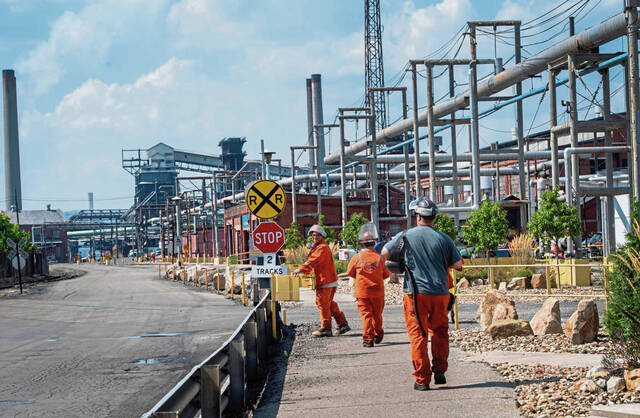If you grew up in Pittsburgh or in one of the nearby steel towns, the deadly explosion at U.S. Steel’s Clairton Coke Works last week — killing two workers and hospitalizing 10 — struck home. There are fewer mills now, but this tragedy is a reminder of the values and sacrifices that once were a part of all of our daily lives here and that still exist wherever steel is made.
JoJo Burgess, who works at the Clairton mill and is also the mayor of Washington, Pa., said, “We all know that we work in a dangerous environment, but people are devastated. Your work family is just as close as your own family and two of our union brothers didn’t make it home that day.”
Steelmaking has always been hard and dangerous work. When I was boy, as grandfathers and fathers and uncles and sons headed out the door with their lunch pails in hand, there were unspoken prayers that they would return in one piece. When they did return, they would wash up in the basement, have a good meal, catch some sleep and start over again the next day.
Inside the mill, men wore asbestos clothing and strapped thick wooden blocks to their shoes to keep the hot floor from melting their feet. Getting splashed with molten steel was not uncommon and nearly always deadly. A grandfather I never met was hit in the head by the swinging hook of an overhead crane and carried home to die.
Few people are left who remember a “Braddock Sunrise,” when the sky above the Edgar Thomson Works turned bright orange — day or night — as molten steel poured from giant ladles. In the winter, the heat from that pour would warm you on the front stoop of my baba’s Talbot Avenue rowhouse a block from the mill.
It is getting harder to find someone who had his first sip of beer with his grandfather at a steelworkers’ bar like Carl’s Corner Café on Braddock Avenue. A shot of harsh rye whiskey and a fishbowl of beer was one way to cut through the mill dust after a shift. Some men stopped for a quick one before their shifts to brace themselves for the grind ahead.
Like many college students from our valley, I was lucky to get a summer job in a mill along the creek in the Hays neighborhood of Pittsburgh. The pay was good. The lessons from that summer were better. I doubled down on my studies after that and, most importantly, I gained a lifelong respect for people who work real jobs, who work hard and dangerous jobs — people who make steel.
Making steel was important for our country. In the days after Pearl Harbor, steel production soared here and Pittsburgh became known as the “Arsenal of the Allegheny,” playing a critical role in the victory of the Allies over the Axis powers. Pittsburgh produced 95 million tons of steel for the war effort.
During the Cold War, when it was reported that Pittsburgh was one the first targets for a Soviet Union nuclear strike, we were proud schoolkids. Steel was that important for freedom and liberty. And our families made steel.
Thomas Bell, in his 1941 novel “Out of This Furnace,” described the struggles of three generations of a Slovak immigrant family of steelworkers that settled in Braddock. Just like today’s immigrants, they were willing to do the toughest jobs. And just like today’s steelworkers — men and women now — they built a nation.








